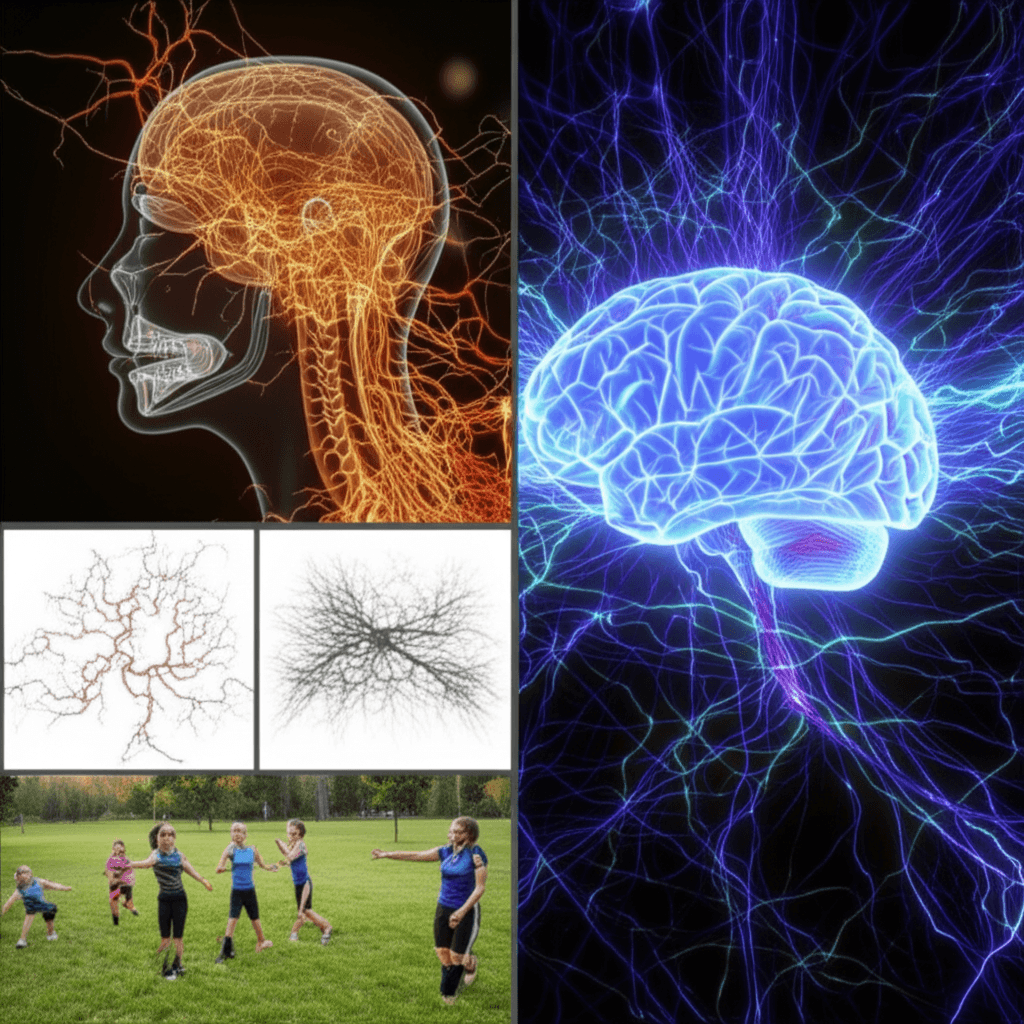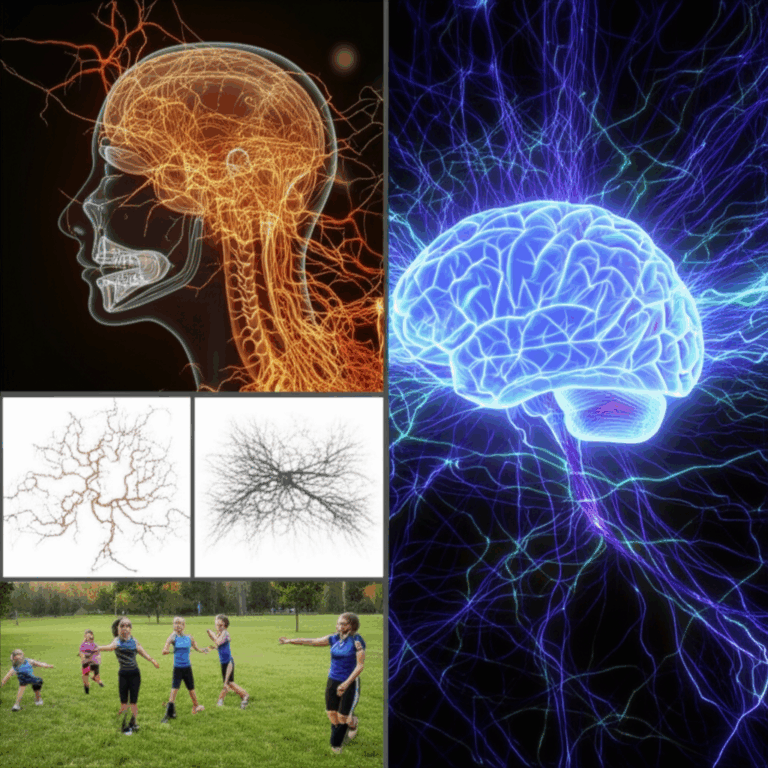In an age where mental health is increasingly recognized as a cornerstone of overall well-being, the role of physical exercise extends far beyond mere physical fitness. While often lauded for its effects on the body, the profound and multifaceted impact of exercise on our mental health is a powerful, yet sometimes underestimated, tool for fostering resilience, alleviating distress, and enhancing cognitive function. Engaging in regular physical activity can be a natural and effective pathway to a healthier mind, offering a spectrum of benefits from boosting mood to significantly reducing symptoms of various mental health conditions.

The Neurochemical Symphony: How Exercise Transforms Your Brain
The immediate and long-term mental health benefits of exercise are deeply rooted in a complex interplay of neurochemical and physiological changes within the brain. When you exercise, your body orchestrates a symphony of responses that directly influence mood, stress levels, and cognitive processes.
Releasing “Feel-Good” Neurotransmitters
One of the most widely recognized benefits of exercise is the release of several powerful brain chemicals often referred to as “feel-good” neurotransmitters:
- Endorphins: These natural opioids are known for their mood-boosting effects, reducing perceptions of pain and promoting a sense of well-being, often leading to the sensation known as “runner’s high.”
- Dopamine: Often called the “happy hormone,” dopamine plays a crucial role in motivation, reward, and reinforcement. Exercise stimulates its release, creating a positive feedback loop that encourages continued activity.
- Serotonin: This neurotransmitter is vital for mood stabilization, sleep, and appetite. Regular physical activity can increase serotonin levels, helping to combat depressive episodes and improve overall mood.
- Norepinephrine: Along with serotonin, norepinephrine helps combat depressive symptoms and boosts energy and alertness. Exercise has been shown to increase its concentration in brain regions involved in the body’s stress response, potentially helping the brain deal with stress more efficiently.
Reducing Stress Hormones
Beyond boosting positive chemicals, exercise is also effective at moderating stress hormones. Physical activity decreases the levels of cortisol and adrenaline, which are released in response to stress. By initially spiking the stress response, exercise can paradoxically train the body to become more resilient to general stress, leading to lower levels of these hormones after physical activity.
Fostering Neural Growth and Function
Exercise doesn’t just alter existing brain chemistry; it also promotes structural and functional improvements in the brain. It increases blood flow and oxygen delivery to the brain, providing essential nutrients that keep brain cells healthy and stimulate the growth of new neurons, particularly in the hippocampus, a region crucial for mood regulation and memory. This process, known as neuroplasticity, enhances cognitive function and helps prevent age-related decline.

Exercise as a Potent Treatment for Mental Health Conditions
Research consistently highlights exercise as a powerful intervention for various mental health conditions, sometimes proving as effective as medication or psychotherapy for mild to moderate symptoms.
Alleviating Depression and Anxiety
For those struggling with depression and anxiety, exercise offers a natural and effective therapeutic pathway:
- Reduced Symptoms: Regular physical activity can significantly ease symptoms of depression and anxiety. Studies suggest that even short durations of activity, like walking for an hour or running for 15 minutes a day, can reduce the risk of major depression by 26%.
- Alternative or Adjunct Treatment: For mild to moderate depression, physical activity can be as effective as antidepressants or psychological treatments like cognitive behavioral therapy. For more severe conditions, it serves as a valuable addition to other prescribed treatments.
- Breaking Negative Cycles: Exercise acts as a healthy distraction, taking your mind off worries and negative thought patterns that often fuel depression and anxiety.
Supporting ADHD Management
Regular exercise is considered one of the easiest and most effective ways to manage ADHD symptoms. Physical activity immediately boosts dopamine, norepinephrine, and serotonin levels, all of which are crucial for focus and attention, functioning similarly to ADHD medications.
Enhancing General Mental Well-being and Resilience
Even without a diagnosed mental health condition, exercise significantly boosts overall mental well-being:
- Improved Mood and Outlook: Consistent activity naturally lifts mood, enhances concentration, and can foster a more positive outlook on life.
- Increased Self-Esteem and Confidence: Achieving exercise goals, no matter how small, can boost self-confidence and improve body image.
- Better Sleep Quality: Regular exercise helps regulate sleep patterns, leading to more restful sleep, which in turn improves mood and the ability to manage emotions.
- Sharper Memory and Thinking: The increased blood flow and beneficial chemicals support sharper memory and cognitive function, making you feel more mentally acute for daily tasks.
- Stronger Resilience: Exercise can help build resilience, enabling individuals to cope with mental and emotional challenges in healthier ways and reduce the impact of stress.

Diverse Pathways to Mental Fitness: Types of Exercise
The good news is that you don’t need to be a marathon runner or gym enthusiast to reap the mental health benefits of exercise. Any form of physical activity is better than none, and a wide variety of exercises can contribute to mental well-being.
Aerobic Exercise
Activities that elevate your heart rate and improve cardiovascular endurance are particularly beneficial.
- Walking, Running, Cycling, Swimming, Dancing: These activities are associated with significant mood improvements, increased endorphins, and reduced stress hormones. Walking for an hour or running for 15 minutes a day can effectively reduce the risk of major depression.
- Group Exercise Classes: Offer both physical benefits and opportunities for social interaction and support, which can further enhance mood.
Strength Training
Using resistance to contract muscles contributes to increased neurotransmitter levels like serotonin, which regulates mood. Strength training can also boost self-esteem and is often easier to maintain long-term.
Mind-Body Practices
These forms of exercise combine physical movement with mental focus, offering holistic benefits:
- Yoga: Combines physical postures, breath control, and meditation, enhancing mental clarity, reducing anxiety, and improving overall well-being. It can also improve self-esteem, provide social benefits in group settings, and reduce stress and improve sleep.
- Tai Chi: Known for its slow, controlled movements and deep breathing, Tai Chi promotes relaxation, reduces anxiety, and improves balance.
Outdoor Activities
Exercising outdoors can provide additional mental health advantages. Studies show that people report higher levels of vitality, enthusiasm, pleasure, and self-esteem, and lower levels of tension, depression, and fatigue after exercising outside. Engaging with nature can boost overall mental well-being.

Practical Recommendations for Integrating Exercise
Experts recommend that adults aim for 2.5 to 5 hours of moderate physical activity or 1.25 to 2.5 hours of vigorous physical activity per week. However, it’s crucial to remember that any exercise is better than none. Even breaking down activity into shorter bursts, such as three 10-minute walks, can be as effective as one 30-minute session.
The key to long-term success often lies in consistency and choosing activities you enjoy. Starting slowly, setting attainable goals, and even exercising with a friend can help build a sustainable routine that profoundly benefits your mental health.







